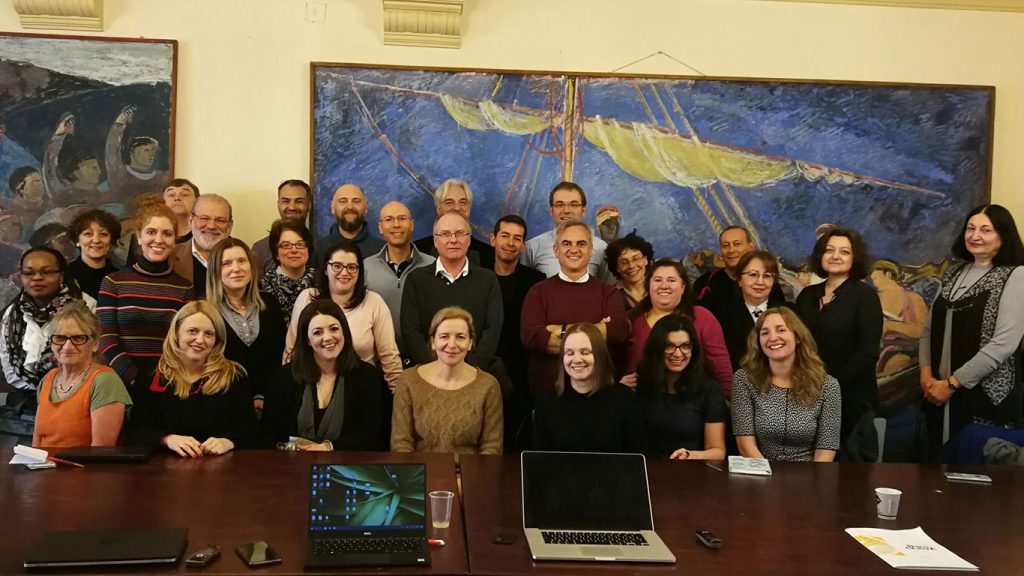MINDDS COST Action (Maximising Impact of research in NeuroDevelopmental DisorderS) held its first workshop from 5th to 6th of March 2018, in Belgrade, the capital of Serbia, in the heart of Europe.
Researchers studying all aspects of rare Neurodevelopmental Disorders (NDD) that arise from pathogenic CNVs (Copy Number Variants) met to discuss how to address key questions for NDD and how best to advance the field. As an introduction, MC Chair Adrian Harwood set the agenda and described the objectives of MINDDS Silvana Markovska-Simoska and Srdjan Djurovic described the available COST instruments, particularly short-term scientific missions (STSM) and training schools (more on https://mindds.eu/activities/training-schools/ and https://mindds.eu/activities/stsm/).
Existing research initiatives, such as Imagine ID, Friday clinic, ENIGMA-CNVs and biotech companies as Neurix SA were described and recent activity discussed in the context of NDD. Imagine-ID (http://imagine-id.org) recruits more than 3000 families with children above the age of 4 with likely CNVs. The online questionnaire DAWBA is sent to the parents. Within one week, parents get the scores of their children and a children book which was written specially for the project. The project confirms that on-line phenotyping at a large scale can be done. Their goal is to collect more than 5000 families. Friday clinic (as a part of http://www.22q11-ibbc.org) brings together a multidisciplinary team of professionals that guide the patients to specialists regarding their individual needs. ENIGMA-CNV aims to carry out meta-analysis on existing structural MRI and DTI data coupled with CNVs within patients with first episodes of psychosis (http://enigma.ini.usc.edu ). Application of stem cell technologies was described by Michael Peitz from Cell Programming Unit at Institute of Reconstructive Neurobiology in Bonn. Different types of stem models were introduced to the participants. Industry perspective was described by Mathurin Baquié, a representative of Neurix SA (http://www.neurinox.eu). Neurix is a company oriented in development of models derived from human pluripotent stem cells for testing drug-efficacy. A MC member, Shlomo Wagner gave an introduction about animal models of rare genetic neurodevelopmental diseases. All issues of small cohorts could be overcome with animal models: they are homogenous, large population of animals carrying the CNV.
Ethical, legal and social issues are important consideration. The ethics framework and academic publications are expected to arise from the investigation about different ethical aspects and regulation across the MINDDS consortium. The discussion after each presentation was fruitful and contributed greatly to MINDDS WGs plans. A major conclusion was to create a knowledge nexus within MINDDS: this knowledge nexus will create a platform for collected data and shared experiences.

